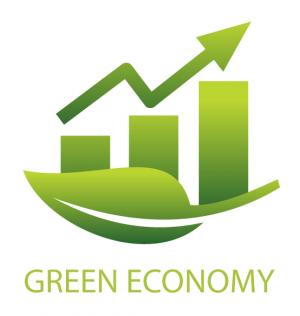Cogeneration for Africa
Description
Source:
"Cogeneration for Africa" is an innovative and first-of-its-kind clean energy regional initiative funded by GEF - set to run for 6 years from mid 2007. The initiative is co-implemented by UNEP and AfDB and executed by AFREPREN/FWD. Cogeneration for Africa will build on the success of cogeneration in Mauritius, which currently meets close to 40% of the country's electricity needs. It seeks to significantly scale up the use of efficient cogeneration systems initially in seven Eastern and Southern African countries (Kenya, Ethiopia, Malawi, Sudan, Uganda, Tanzania and Swaziland).
The Cogeneration for Africa project will work with promising and profitable ago-industries with a solid track record and that have demonstrated commitment to expanding their cogeneration investments in Africa. Notable agro-industries that are expected to actively participate in the project include private-sector-owned and profitable sugar companies as well as private sector entities involved in agro-processing industries such as pulp and paper, forest products, palm oil, ground nuts, sisal and rice.
"Cogeneration for Africa" is designed to promote wider use of efficient cogeneration options in Africa and eventually stimulate over US$ 300 million of cogeneration investment in the region. It will also work with policy makers to expand clean electricity sales from cogeneration plants to the national grids of the region which will, in turn, deliver substantial socio-economic benefits at local and national level as well as expand the clean energy industry in the region.
SDGS & Targets
Goal 8
Promote sustained, inclusive and sustainable economic growth, full and productive employment and decent work for all
8.1
8.1.1
Annual growth rate of real GDP per capita
8.2
Achieve higher levels of economic productivity through diversification, technological upgrading and innovation, including through a focus on high-value added and labour-intensive sectors
8.2.1
Annual growth rate of real GDP per employed person
8.3
Promote development-oriented policies that support productive activities, decent job creation, entrepreneurship, creativity and innovation, and encourage the formalization and growth of micro-, small- and medium-sized enterprises, including through access to financial services
8.3.1
Proportion of informal employment in total employment, by sector and sex
8.4
Improve progressively, through 2030, global resource efficiency in consumption and production and endeavour to decouple economic growth from environmental degradation, in accordance with the 10-Year Framework of Programmes on Sustainable Consumption and Production, with developed countries taking the lead
8.4.1
Material footprint, material footprint per capita, and material footprint per GDP
8.4.2
Domestic material consumption, domestic material consumption per capita, and domestic material consumption per GDP
8.5
8.5.1
Average hourly earnings of female and male employees, by occupation, age and persons with disabilities
8.5.2
Unemployment rate, by sex, age and persons with disabilities
8.6
8.6.1
Proportion of youth (aged 15-24 years) not in education, employment or training
8.7
Take immediate and effective measures to eradicate forced labour, end modern slavery and human trafficking and secure the prohibition and elimination of the worst forms of child labour, including recruitment and use of child soldiers, and by 2025 end child labour in all its forms
8.7.1
Proportion and number of children aged 5‑17 years engaged in child labour, by sex and age
8.8
Protect labour rights and promote safe and secure working environments for all workers, including migrant workers, in particular women migrants, and those in precarious employment
8.8.1
Fatal and non-fatal occupational injuries per 100,000 workers, by sex and migrant status
8.8.2
Level of national compliance with labour rights (freedom of association and collective bargaining) based on International Labour Organization (ILO) textual sources and national legislation, by sex and migrant status
8.9
By 2030, devise and implement policies to promote sustainable tourism that creates jobs and promotes local culture and products
8.9.1
Tourism direct GDP as a proportion of total GDP and in growth rate
8.10
Strengthen the capacity of domestic financial institutions to encourage and expand access to banking, insurance and financial services for all
8.10.1
(a) Number of commercial bank branches per 100,000 adults and (b) number of automated teller machines (ATMs) per 100,000 adults
8.10.2
Proportion of adults (15 years and older) with an account at a bank or other financial institution or with a mobile-money-service provider
8.a
8.a.1
Aid for Trade commitments and disbursements
8.b
By 2020, develop and operationalize a global strategy for youth employment and implement the Global Jobs Pact of the International Labour Organization
8.b.1
Existence of a developed and operationalized national strategy for youth employment, as a distinct strategy or as part of a national employment strategy
SDG 14 targets covered
Deliverables & Timeline
Resources mobilized
Partnership Progress
Feedback
Action Network


